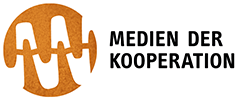All information and the registration form for the 2024 annual conference of the CRC 1187 “Scaling Sensing – Sensing Publics: Landscapes, and Borders, Homes and Bodies” can be found ➞here.
About the conference
The Collaborative Research Center “Media of Co-operation” first annual conference of its third and final funding phase, explores the interplay between sensing and the public. Through the theme “Scaling Sensing – Sensing Publics. Landscapes, and Borders, Homes and Bodies” the conference examines the mutually constitutive dynamics of sensing practices and the publics they shape and are shaped by, through multi-perspective, interdisciplinary approaches to sensing practices in graduated, fragmented, and heterogenous public spheres. How are sensors and sensing practices shaped within different public realms?
The pervasive integration of sensor technologies is fundamentally changing the way we perceive, sense, and produce knowledge. Technological sensors are capable of making their captured data visible and credible in ways human and environmental sensors cannot: they track movement, measure health data, and analyze built and grown environments. Thereby, they influence diverse settings, ranging from landscapes to cities, to homes and bodies. They both enhance and obscure bodily sensorial practices and intervene in their publicity and intersubjectivity. While sensor media might offer solutions to social, political, technological, medical, and environmental challenges, they also raise ethical and political concerns, such as privacy erosion, disconnection between sensory data and sensory experiences, controversial forms of surveillance, and the socio-technical diffusion of prejudices and various forms of bias. Thus, sensor data, their collection, analysis, and integration with other data formats, and within various social practices, groups of people, and institutions are constitutive not only of sensing but also of publicity and publicness. This conference aims to refine our understanding of the relationship between sensing and publics by examining collaboratively constituted sensors, media, and sensations across different research fields. Contributions present case studies from diverse disciplines and foreground practice in their theoretical stance, addressing the interplay between sensing and publics across four key domains:
- Landscapes. Use of sensors in environmental settings, such as in cities, forests, waters, agricultural terrains, or resource management;
- Borders. Sensing practices and control at physical and digital borders or within communities, such as in settings of migration, security, and bureaucratic control;
- Homes. Sensor applications in domestic spaces, such as smart home technologies, security, care, and design;
- Bodies. Situated embodied sensing in social interaction, and the (dis)connections with wearable sensors, biometric identification, quantified and embodied self in social, religious, and health settings.
These four key domains represent different scales of publicness involved in sensing, but also a range of different sociopolitical and environmental contexts in which various forms of socio-technical sensing occur, distributed among multiple actors, including humans, machines, and the environment.
To enhance interdisciplinary dialogue and debate, all contributions should engage with the broader issues of sensing and publicity that guide this conference and address the following questions:
- How are sensing and sensing practices shaped within different public realms?
- Who and what is being sensed, by whom, and for what practical purpose?
- Which relationships are established between sensing, sensors, the sensed, and materiality/the environment?
- What happens to sensory data, how are they used and how might they be misused?
- What are the ethical and political implications of distributed sensing? What happens to the intersubjectivity of sensing in embodied practices and technologically augmented practices?
- What are the individual, social, ethical, political, and environmental consequences of interacting with sensing technologies?


